Scientific Names: Trigonella foenum-graecum L.
Synonyms: Buceras foenum-graecum (L.) All., Folliculigera graveolens Pasq.
English Name: Fenugreek seed
Other Names in English (UK, USA, Canada, South Africa, Australia, New Zealand): Greek Hay, Common Fenugreek, Sicklefruit Fenugreek
Family: Fabaceae
GENERAL DATA
Plant Parts: Seeds, Leaves, Seed Oil, Leave hydrosol
Cultivation mode: Cultivated
In manufacturing: Spices, livestock and poultry feeds, pharmaceutical, skin care and cosmetics.
In food: Soups, salads, etc.
🌿 Industries That Use Fenugreek Seed (Trigonella foenum-graecum L.)
Here is a professional and structured breakdown for Fenugreek Seeds, derived from Trigonella foenum-graecum L., a highly valued botanical in food, pharmaceutical, and nutraceutical industries.
🌿 What Are Fenugreek Seeds?
Fenugreek seeds are the dried, angular golden-brown seeds of the Trigonella foenum-graecum plant, native to the Mediterranean and widely cultivated in South Asia, the Middle East, and parts of Africa.
The seeds are rich in saponins, alkaloids (notably trigonelline), flavonoids, mucilage, and 4-hydroxyisoleucine, a rare amino acid linked to blood sugar regulation.
Used for culinary, medicinal, cosmetic, and agricultural purposes, fenugreek seeds are among the most versatile functional plant ingredients in the global trade.
1. Pharmaceutical & Traditional Medicine Industry
Fenugreek seeds are well-documented in Ayurvedic, Unani, Traditional Chinese, and Persian Medicine systems.
Applications:
-
Blood sugar regulation: Used in traditional formulas for managing diabetes and metabolic disorders
-
Digestive aid: Carminative and mucilage-rich, helpful for indigestion and bloating
-
Lactation enhancer: Galactagogue in postpartum formulas
-
Anti-inflammatory: For arthritis, cough, and bronchial irritation
✅ Common forms: powder, capsules, decoction, infused oils, and poultices
2. Herbal & Nutraceutical Industry
Widely used in natural health supplements for metabolic, hormonal, and digestive benefits.
Formulations include:
-
Blood sugar support capsules or tablets
-
Hormonal balance blends for women (PMS, menopause)
-
Appetite stimulants and digestive bitters
-
Liver detox and antioxidant combinations
✅ Often paired with Gymnema, Cinnamon, or Milk Thistle
3. Food & Culinary Industry
A key culinary spice and flavoring agent in South Asian, Middle Eastern, Mediterranean, and North African cuisines.
Culinary roles:
-
Flavoring agent in curries, pickles, spice blends (e.g., curry powder)
-
Used in bread, sauces, and stews for its bitter-aromatic profile
-
Sprouted for health foods
-
In fermented products like chutneys or injera
✅ Used whole, ground, roasted, or soaked
4. Functional Food & Beverage Industry
Fenugreek is gaining traction in functional food formulations aimed at metabolic health, women’s wellness, and gut support.
Products include:
-
Fenugreek-infused teas and herbal coffees
-
Nutritional snack bars and powders
-
Digestive tonics and bitters
-
Fortified health drinks and smoothie blends
✅ High in soluble fiber and natural prebiotics
5. Cosmetic & Personal Care Industry
Fenugreek seeds and extracts are used for hair, skin, and scalp care, especially in traditional and Ayurvedic beauty routines.
Uses:
-
Hair masks and oils for dandruff, hair strengthening, and shine
-
Anti-acne pastes and face masks
-
Added to cleansers and anti-aging products for skin elasticity
-
Bath powders and scrubs in herbal beauty lines
✅ Naturally rich in mucilage and antioxidants
6. Animal Feed & Veterinary Industry
Fenugreek seed is used in livestock nutrition and herbal veterinary care.
Roles:
-
As a natural growth promoter in poultry and ruminants
-
Improves digestion and feed intake
-
May enhance milk production in dairy animals
-
Used in herbal parasite treatments for farm animals
✅ Often incorporated into compound feeds and premixes
7. Ethnic, Organic & Export Markets
A staple export item from India, Iran, Egypt, and Turkey, fenugreek is vital in ethnic spice markets, organic raw material exports, and wellness product supply chains.
Exported as:
-
Whole seeds (bulk or retail)
-
Powdered spice
-
Extracts and tinctures
-
Organic certified lots for Europe, USA, and Gulf markets
✅ Found in gourmet food shops, ethnic grocers, and herbal distributors
8. Scientific & Biomedical Research
Fenugreek is actively researched for its potential effects on metabolic syndrome, blood glucose, lipid levels, and hormonal activity.
Research areas:
-
4-hydroxyisoleucine for insulin modulation
-
Saponins and diosgenin in cholesterol control
-
Phytoestrogenic compounds for female health
-
Anti-inflammatory and antimicrobial bioactivity
✅ High potential for future functional food and pharma integration
✅ Summary of Key Applications
| Industry | Common Uses |
|---|---|
| Pharmaceutical & Traditional | Antidiabetic, galactagogue, digestive, anti-inflammatory |
| Herbal & Nutraceutical | Blood sugar capsules, PMS support, liver cleanse |
| Food & Culinary | Spice blends, curries, pickles, breads |
| Functional Foods | Herbal teas, detox drinks, metabolic powders |
| Cosmetic & Beauty | Hair oils, anti-acne masks, scrubs |
| Animal Feed | Digestive enhancer, milk stimulant, natural tonic |
| Ethnic & Export | Organic bulk spice, tinctures, ethnic wellness products |
| Scientific Research | Glucose metabolism, lipid lowering, estrogenic activity |
🌟 Key Features
-
Rich in saponins, flavonoids, and 4-hydroxyisoleucine
-
Multifunctional: culinary, medicinal, cosmetic, agricultural
-
Strong export demand in Asia, EU, and Gulf regions
-
Used whole, powdered, sprouted, or extracted
-
Recognized in both ancient medical texts and modern pharmacopoeias
🌿 Industries That Use Fenugreek Herb / Leaves (Trigonella foenum-graecum L.)
Here is the professional and structured breakdown for Fenugreek Herb (Leaves) from Trigonella foenum-graecum L.
🌿 What Is Fenugreek Herb?
Fenugreek herb refers to the fresh or dried green leaves of Trigonella foenum-graecum, also known as methi in South Asia. These leaves are distinct from the seeds and are used for culinary, medicinal, and wellness purposes due to their slightly bitter, aromatic, and earthy flavor.
Fenugreek leaves are rich in vitamins A, C, K, calcium, iron, flavonoids, alkaloids, and antioxidants—offering both nutritional and therapeutic benefits.
1. Culinary & Food Industry
Fenugreek leaves are a staple leafy vegetable and herb in Indian, Middle Eastern, and Mediterranean cuisine.
Applications:
-
Used fresh or dried (kasuri methi) in curries, stews, lentils, and breads
-
Enhances flavor in savory dishes, giving a slightly bitter umami note
-
Added to parathas, soups, and sauces for aroma and taste
-
Used in fermented doughs and pickles
✅ Dried form (kasuri methi) has stronger aroma and is used as a final flavoring sprinkle
✅ Valued in vegetarian and vegan cuisines for its meaty depth
2. Functional Food & Beverage Industry
Fenugreek leaves are increasingly included in health-forward food products due to their fiber, iron, and antioxidant content.
Products include:
-
Herbal soups, powdered greens, and nutritional blends
-
Dehydrated vegetable mixes for instant foods
-
Green superfood powders for smoothies and shakes
-
Used in low-calorie and diabetic-friendly meals
✅ Fresh leaves are rich in dietary fiber and phytonutrients
3. Pharmaceutical & Traditional Medicine Industry
In traditional medicine systems (Ayurvedic, Persian, Unani), fenugreek herb is used as a mild anti-inflammatory and digestive tonic.
Medicinal uses:
-
Blood sugar and cholesterol support (less potent than seeds, but still effective)
-
Mild laxative and appetite stimulant
-
Liver stimulant in bitter herbal tonics
-
Topical paste for skin irritations or eczema
✅ Used as decoction, poultice, or steamed greens in traditional practice
4. Herbal & Nutraceutical Industry
Dried fenugreek leaf extract is occasionally used in nutraceutical products as a mild blood purifier, digestive, and antioxidant.
Product types:
-
Herbal green capsules (detox and digestion)
-
Liver cleanse and antioxidant formulas
-
Women’s wellness products (as phytoestrogenic support)
-
Included in fiber-rich blends for gut health
✅ Less concentrated than seed-based supplements but gentler and often preferred for long-term use
5. Cosmetic & Personal Care Industry
Fenugreek leaf is used in herbal skincare and haircare—especially in Ayurvedic and traditional beauty systems.
Uses:
-
Face masks and cleansers for acne-prone skin
-
Infused into hair masks or scalp tonics
-
Soothing ingredient in bath powders or scrubs
✅ Its mild anti-inflammatory and skin-calming properties make it suitable for sensitive skin formulas
6. Agricultural & Animal Feed Industry
Fresh fenugreek greens are occasionally used in fodder for livestock due to their palatability and nutrient content.
Roles:
-
Fed as fresh green to cattle, goats, or poultry
-
Acts as a digestive tonic for animals
-
Grown as part of multi-crop rotations in organic farms
✅ Rich in protein and safe for most farm animals
7. Ethnic & Organic Export Markets
Fenugreek leaves are in high demand in South Asian diaspora markets, organic herbal retailers, and ethnic food sectors.
Export forms:
-
Dried leaves (kasuri methi) in retail pouches or bulk
-
Frozen chopped leaves for international kitchens
-
Green powder for culinary and supplement uses
✅ Highly exportable as culinary herb or health ingredient
8. Scientific & Nutritional Research
Fenugreek leaves are studied for their anti-inflammatory, antidiabetic, and antioxidant properties, and for their micronutrient richness.
Research areas:
-
Flavonoids and their role in reducing oxidative stress
-
Iron and mineral bioavailability
-
Gastrointestinal effects of mucilage and fiber
-
Phytochemical comparisons between leaves and seeds
✅ Leaves are less potent than seeds but more balanced in micronutrients and fiber
✅ Summary of Key Applications
| Industry | Common Uses |
|---|---|
| Culinary & Food | Curries, pickles, breads, flavor enhancers (kasuri methi) |
| Functional Foods | Soups, green powders, diabetic foods, meal kits |
| Pharmaceutical & Traditional | Mild digestive tonic, skin poultice, blood sugar support |
| Nutraceuticals | Detox capsules, antioxidant blends, herbal greens |
| Cosmetic & Skincare | Herbal face packs, anti-acne creams, scalp treatments |
| Animal Feed | Nutritious green fodder for cattle and poultry |
| Ethnic & Export | Kasuri methi, frozen greens, powdered herbs |
| Scientific Research | Antioxidant content, fiber, flavonoids, diabetes support |
🌟 Key Features
-
Rich in flavonoids, chlorophyll, iron, and dietary fiber
-
Distinct aromatic bitter flavor—used both as herb and leafy vegetable
-
Versatile across culinary, medicinal, and personal care industries
-
Exported as dried (kasuri methi), powdered, or frozen chopped
-
Complements seeds in holistic fenugreek applications
🌿 Comparison Table: Fenugreek Seed vs. Fenugreek Leaves
(Trigonella foenum-graecum L.)
Here is a professional comparison table between Fenugreek Seed and Fenugreek Leaves—highlighting their differences in composition, uses, industry applications, and market forms.
| Aspect | Fenugreek Seed | Fenugreek Leaves (Herb) |
|---|---|---|
| Plant Part | Dried seeds (legume) | Fresh or dried leaves (herb/vegetable) |
| Taste & Aroma | Bitter, nutty, maple-like | Bitter, earthy, aromatic (kasuri methi) |
| Color | Golden-yellow to amber | Fresh: green; Dried: dull green |
| Key Compounds | Diosgenin (saponins), alkaloids (trigonelline), galactomannans | Flavonoids, vitamins A/C/K, iron, mucilage |
| Traditional Medicine Use | Lactation support, blood sugar/cholesterol control, libido booster | Digestive aid, mild antidiabetic, blood purifier, anti-inflammatory |
| Culinary Use | Spice (seeds or ground), pickles, curry base | Herb/leafy vegetable; flavor enhancer in curries, lentils, flatbreads |
| Nutraceutical Use | Capsules, powders, standardized extracts for metabolism, hormones, male health | Green powder, detox capsules, antioxidant and digestion support |
| Functional Food Use | Protein blends, fiber supplements, diabetic-friendly foods | Soup blends, diabetic meal kits, herbal teas, green supplements |
| Cosmetic Use | Hair care (hair growth), anti-aging, firming products | Herbal face masks, scalp tonics, calming skincare |
| Animal Feed Use | Used in livestock digestion and lactation support | Used as nutrient-rich green fodder |
| Export Form | Whole, ground, or extract powder | Dried leaves (kasuri methi), frozen, green powder |
| Scientific Focus | Hormonal modulation, blood sugar regulation, galactagogue effect | Flavonoid content, antioxidant effects, iron bioavailability |
✅ Summary
| Feature | Seed | Leaves |
|---|---|---|
| Potency | Higher in concentrated bioactives like saponins and alkaloids | Milder, rich in fiber, antioxidants, and micronutrients |
| Culinary Role | Base spice and flavor enhancer | Green herb and top-note flavor |
| Preferred In | Pharmaceuticals, nutraceuticals, metabolic support | Culinary, personal care, traditional wellness |
| Shelf Life | Long (dry seeds stable) | Medium (dried form stable, fresh is perishable) |
PRODUCT NAME IN DIFFERENT LANGUAGES
Persian Name: شنبلیله/ Shanbalileh
German Name (Deutschland, Austria, Switzerland): Bockshornkleesamen
French Name (France, Belgium, Switzerland, Quebec): Graines de Fenugrec, Graine de Foin Grec
HARVEST CALENDAR
Feb
Mar
Apr
May
Jun
Jul
Aug
Sep
Oct
Nov
Dec
To order Fenugreek seed, please contact us.
The flowers are small, white, and sometimes yellow, and grow singly. Each flower has three petals. One of these petals is larger and looks like a plate with green streaks on it, and the other two petals are smaller and face each other in the middle of the larger petals.
The fruit is a green, elongated, slender, pointed pod that contains several seeds. The yellow Fenugreek seeds are brick orange, crooked, relatively large, and sometimes angular and square. But in general, they do not have a regular shape. These seeds are bitter in taste and aromatic.
Trigonella foenum-graecum Chemical Constituents
Trigonelline, Choline, Saponin, Prolamin, Triacontane, β-sitosterol.
To order Methi seeds, please contact us.
If you make a decoction contains of Fenugreek seed, Tamarind, Raisins, Figs, and Maidenhair fern, then strain and add honey. Drinking this decoction will improve shortness of breath, hoarseness, sore throat, chest pain, chronic lung pain and treats lung diseases.
These seeds plus 11 grams of Rubia tinctorium tea is laxative and emmenagogue, and is useful for fractures and weak limbs.
Fenugreek seeds drops is useful for epiphora, bloodshot eyes and conjunctivitis.
Due to the nutrients contained in Fenugreek, it is very effective for strengthening and has given good results for patients with tuberculosis.
Some sages have used these seeds in diabetes because it is very effective in preventing people with diabetes from losing weight.
Fenugreek seed poultice removes internal and external harden swellings, dandruff, Melasma, fire burns, cold fissures, nail curvature, splenitis, uterine inflammation, hair loss and skin blemishes.
Trigonella foenum-graecum seed flour poultice with honey is useful for cold swellings, and also this poultice with barley flour, Damask Rose oil and vinegar removes warm swellings. This flour with Figs, opens the abscess. If you mix this flour with borax and poultice it, helps to eliminate the size of the spleen.
Washing hair with brewed Fenugreek make hair smooth and is useful for eczema and moist wounds.
Fenugreek seed oil improves hard swellings, abscess, diarrhea, and dandruff.
Fenugreek Side Effects
Drinking Fenugreek seeds plus Rubia tinctorium tea causes the smell of sweat or urine to stink.
Excessive consumption of Fenugreek seeds is harmful to the testicles and ovaries and causes headaches and nausea.
Fenugreek Modifiers
Sour Sekanjebin, Anise, sour-sweet Pomegranate juice.
To order Trigonella foenum graecum seeds, please contact us.

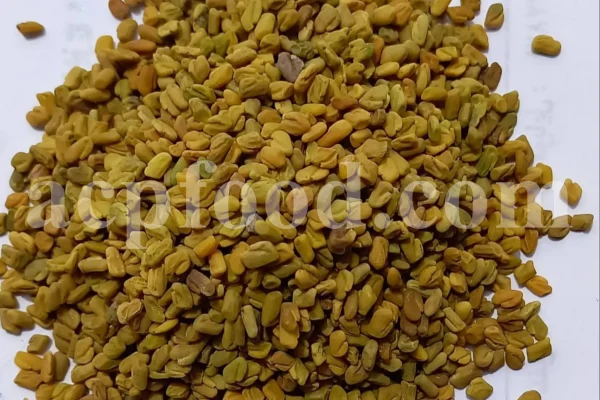

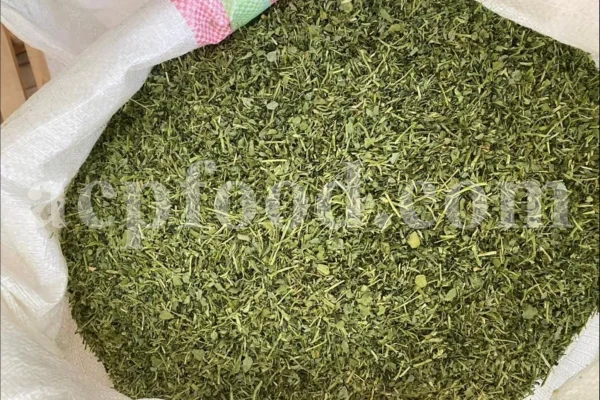
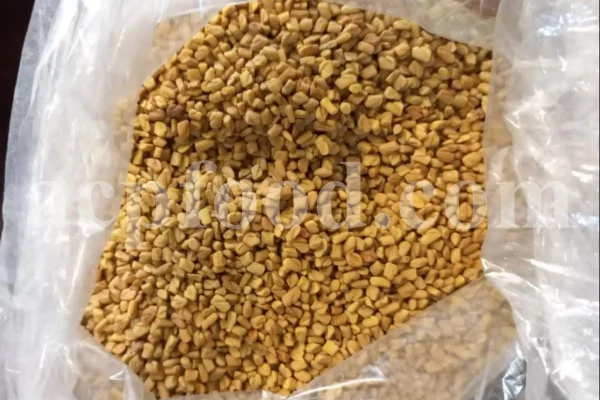
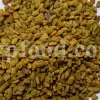
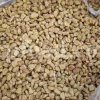
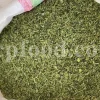
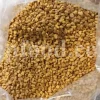
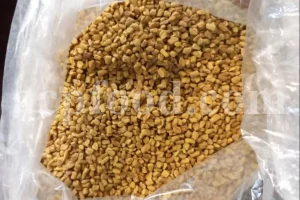
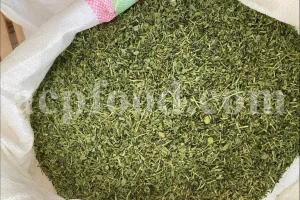
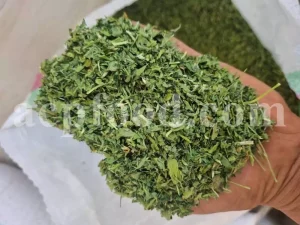
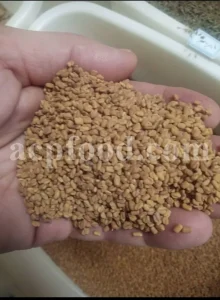
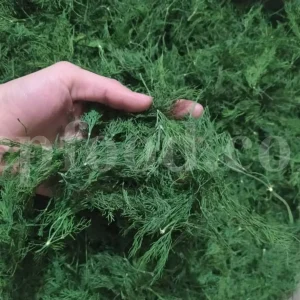
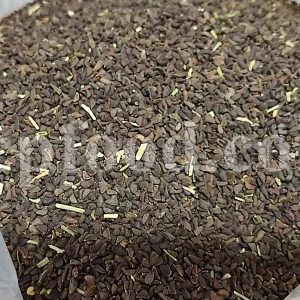
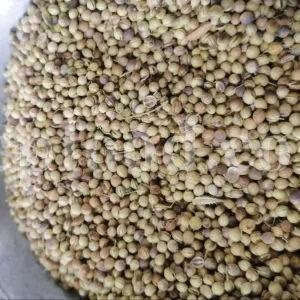
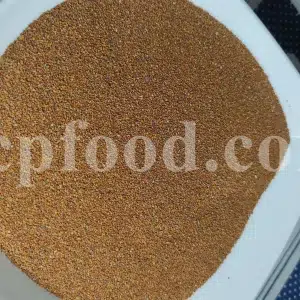
Reviews
There are no reviews yet.